Pioneer Spectrum goes to Germany
Pioneer Spectrum goes to Germany
Tina Hodgett and Lindsay Morgan-Lundie travelled from south-west England to south-west Germany to help make the Pioneer Spectrum tool accessible for a German audience. They found friends and inspiration aplenty.
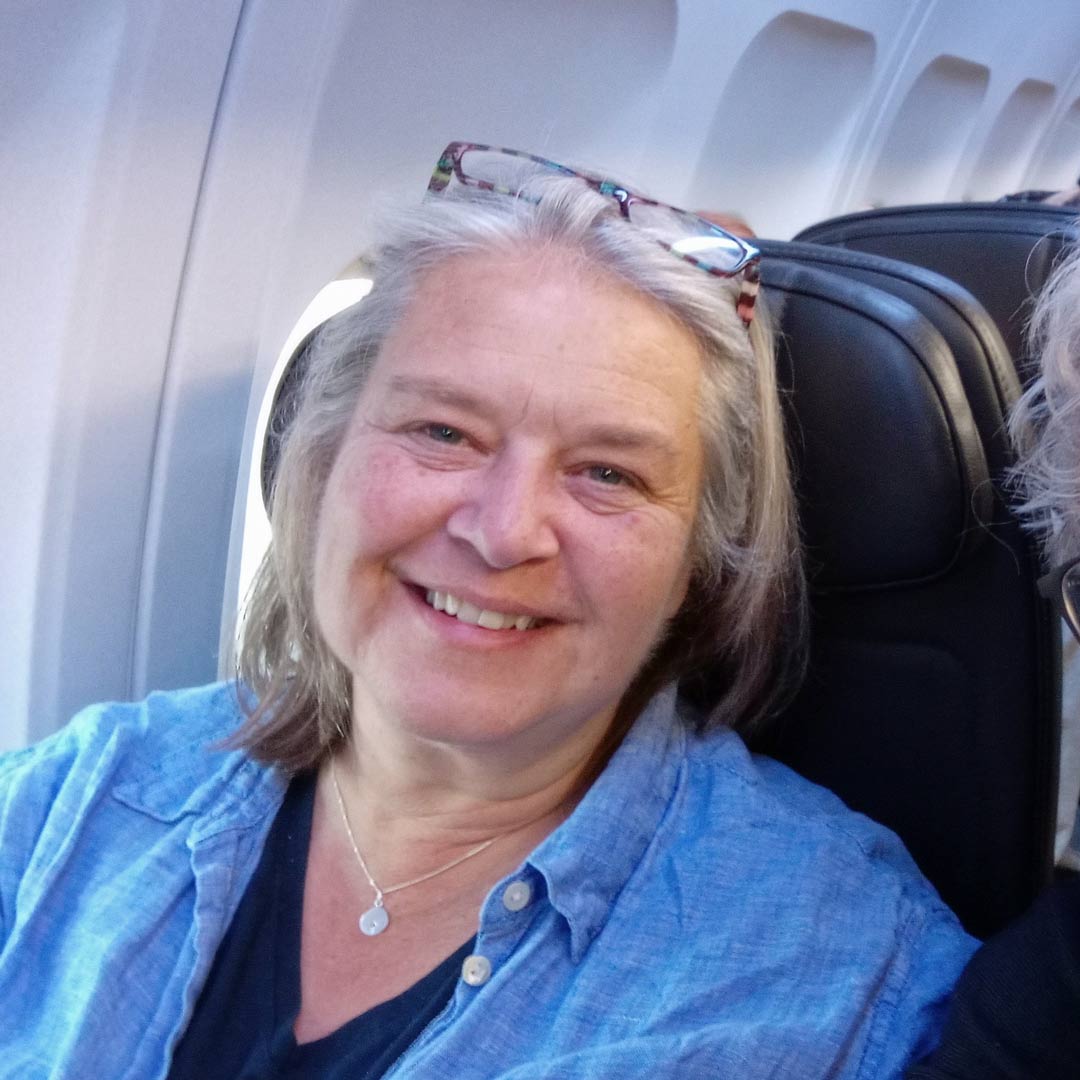
by Lindsey Morgan-Lundie
In mid-October 2024 Tina Hodgett and I (leaders of the CMS South West Hub) travelled to a region of south-west Germany approximately the size of Devon with rural context from mountains to fields. We received a warm welcome from our ecumenical hosts and enjoyed a beer in the hotel bar with them late into the first evening. The energy was high in anticipation for the Gründergeist Summit the following day.
Gründergeist means ‘Spirit of the Founder’ in German. Choosing to call their event a ‘summit’ rather than a festival or a conference; the hosts were excited to draw 200 attendees! It was planned and hosted by an ecumenical network of Christians with a mission of finding and encouraging pioneers and empowering a network so that they initiate new, complementary forms of church.
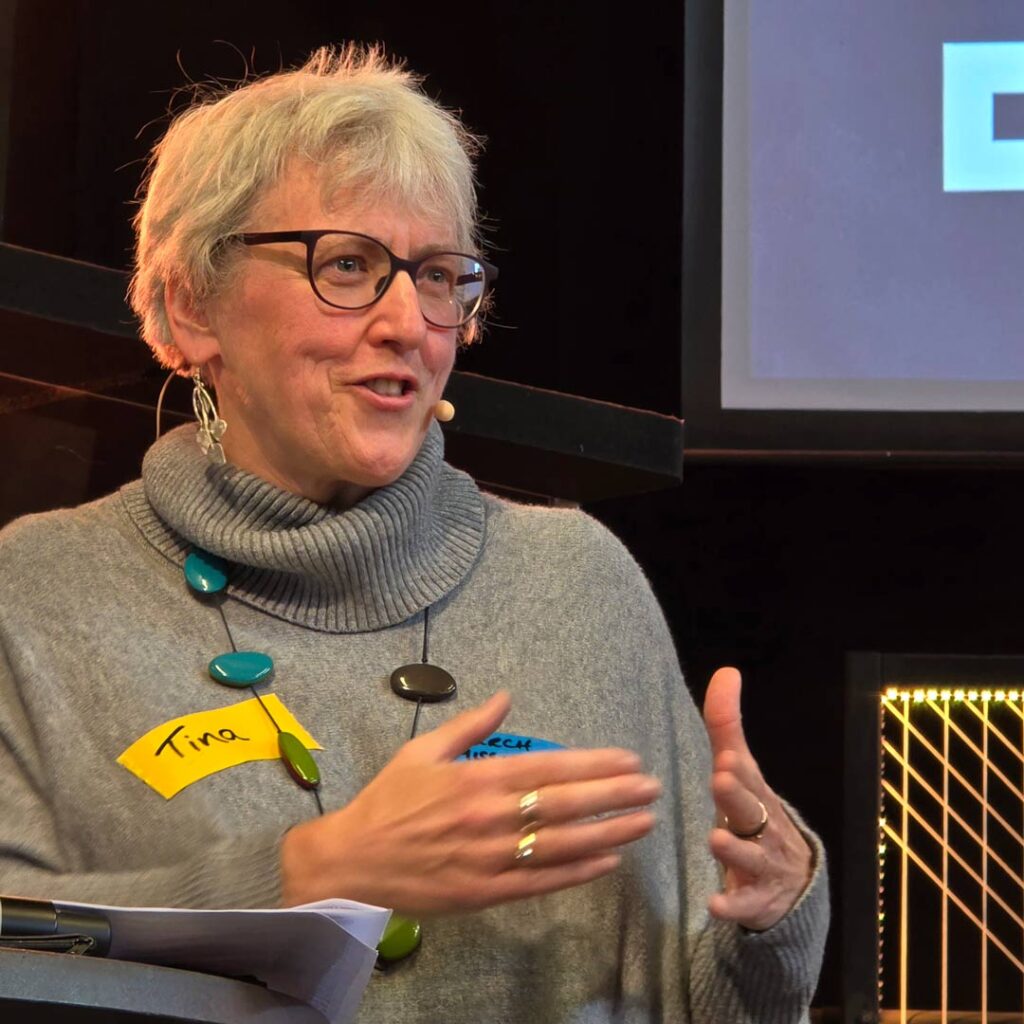
Deep connections
The evening conversation in the bar created deep connection through mention by one of the keynote speakers of a paper Tina had written in 2021 for the Diocese of Bath and Wells called ‘Towards a Fully Pioneering Diocese‘. This had been made more widely available at the time via CMS.
Pastor Sandy Bils, Honorary Professor at Berlin University, explained how greatly this paper has influenced her and her approach to talking about pioneering to a church audience in order to help change culture. This felt significant, as if we were joining God in the missio dei.

The following morning we travelled to the conference venue, a YMCA facility. The YMCA in Germany has a much larger influence in the church there than it does in the UK. The church in Germany is also funded very differently to the UK with a church tax levied on its members called ‘Kirchensteuer’ taken direct from the payroll of its members.
Youth x jazz
The venue was modern, with high ceilings giving space and creating a fresh canvas to allow ideas to percolate. Tina and I were struck by the youthfulness of the gathering as well as the equal mix of genders.
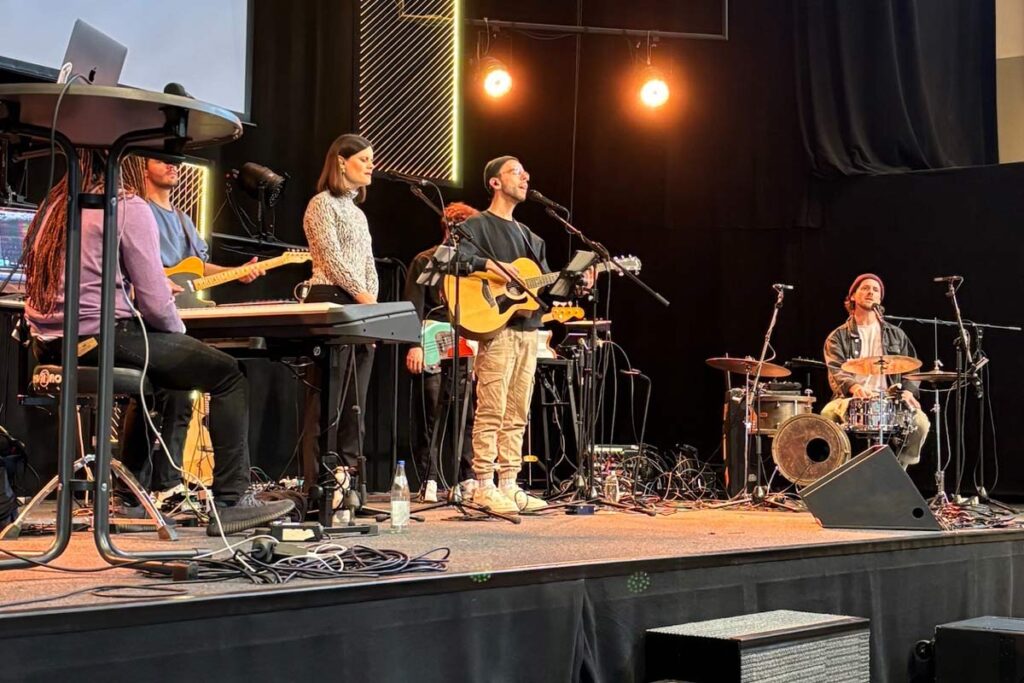
Once introductions had been made we took our seats for the day’s programme. We were completely blown away by the inspirational jazz inspired worship by a band from Central Arts, an international movement of creatives in pop culture and church.
This created a wonderful platform to explore pioneering throughout the day. In a jazz band everyone’s calling is unique and valued, time is given to appreciate the individual’s expertise and space is made for them to explore their instrument from a place of what has gone before in the set. This continues to build into a crescendo of collaboration to take the audience into a new experience of joy and illumination. There is much to learn from this!
Exnovation
Sandy Bils headed up the programme with a talk beginning with Jesus’ call to Lazarus to ‘come out’ of the grave and giving an insight into her new book on ‘Exnovation’ – the art of knowing what and how to stop a practice that was once new.
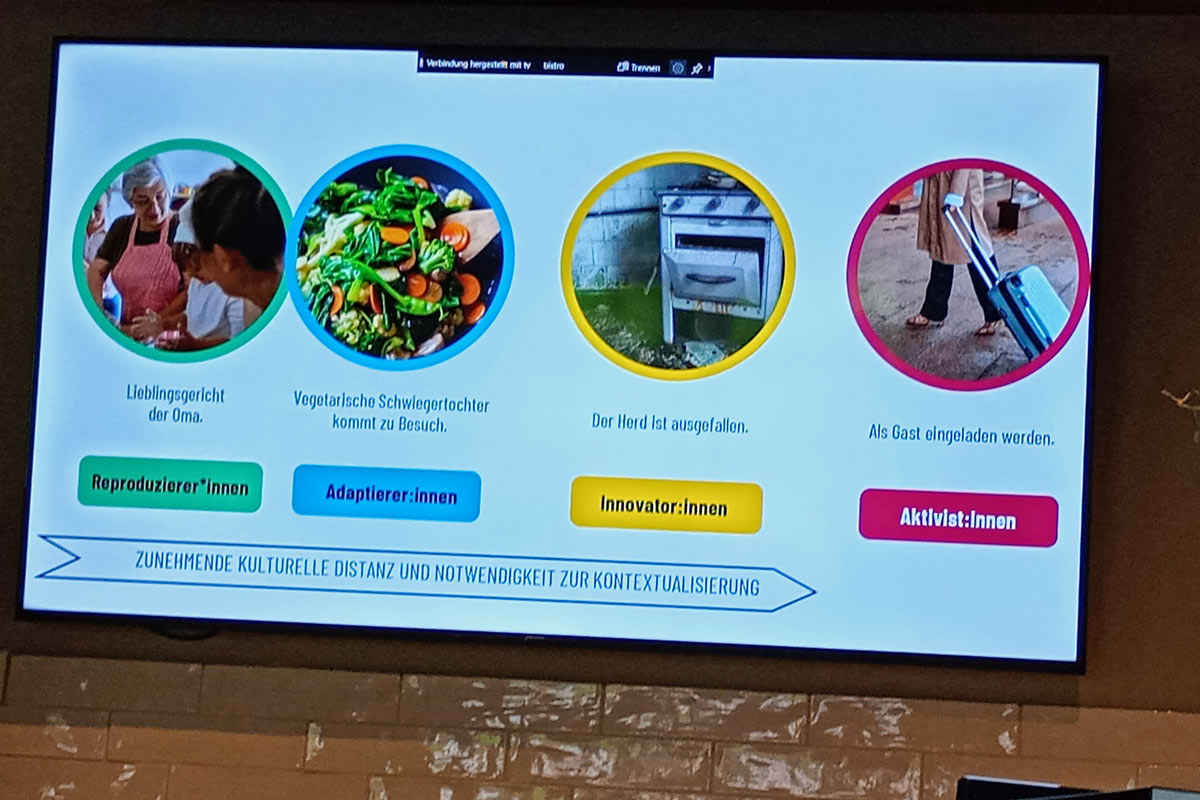
She was followed by Tina who introduced the Pioneer Spectrum ahead of the unveiling later that day of the new contextual development of the spectrum specifically for Germany. She spoke with passion and connected meaningfully with the audience particularly when talking about releasing people’s individual giftings.
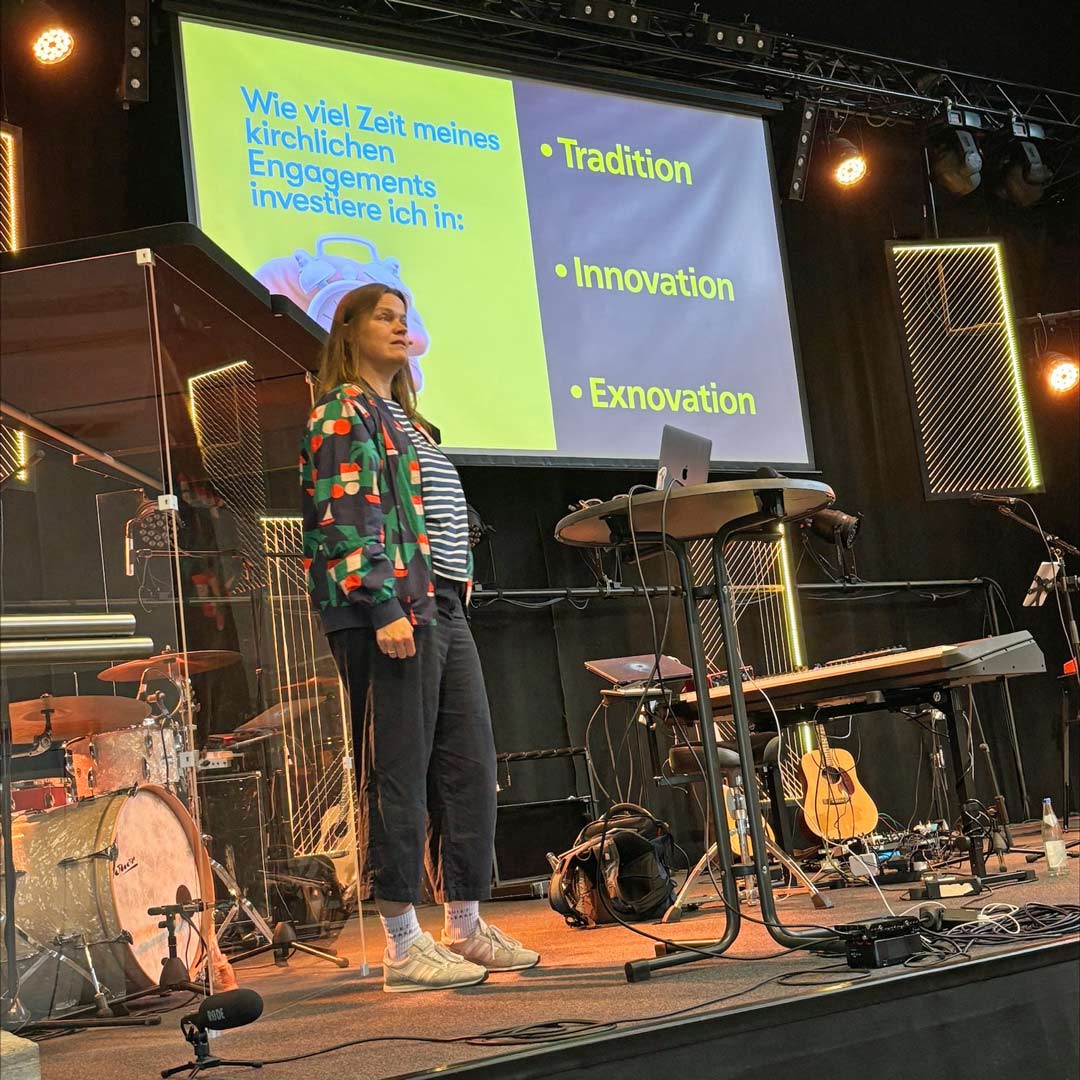
The third speaker was Daniel Terner, an innovative entrepreneur who was captivating in his delivery and message around starting new things and dreaming big, with the takeaway of finding “a different how to help your why“.
Connecting in context
In the afternoon sessions people gathered across various workshops, one of which was the contextualisation of the Pioneer Spectrum for a German audience, by a team headed by Felix Goldinger. This was well attended and some good discussion had, particularly when using the spectrum cards. The team who worked on the contextualisation piece used ideas around cooking to distinguish the different pioneer types, making them particularly clear and relatable.
There are a few things to reflect on from this time away. Firstly, it is the different approach to pioneering.
Germany feels better resourced and approaches mission very much through an entrepreneurial perspective, whereas in the UK pioneer mission tends to draw on more organic approaches often using forests or agriculture as our metaphors, happy to start small.
This may be related to the difference in access to finance available in the two countries, as well as other factors. Working in collaboration with the two differing perspectives may help both flourish; hosting more conversations in this space felt important.
Accelerating deconstruction?
Secondly, following various conversations, particularly with women in their early 30s, I noted a pattern of frustration, especially in the Catholic church. It was also apparent that many are in various stages of ‘deconstruction’ of their faith and I found this surprising given the youthfulness of the people attending and the theories on stages of faith which often suggest this happens more between the ages of 40 and 65.
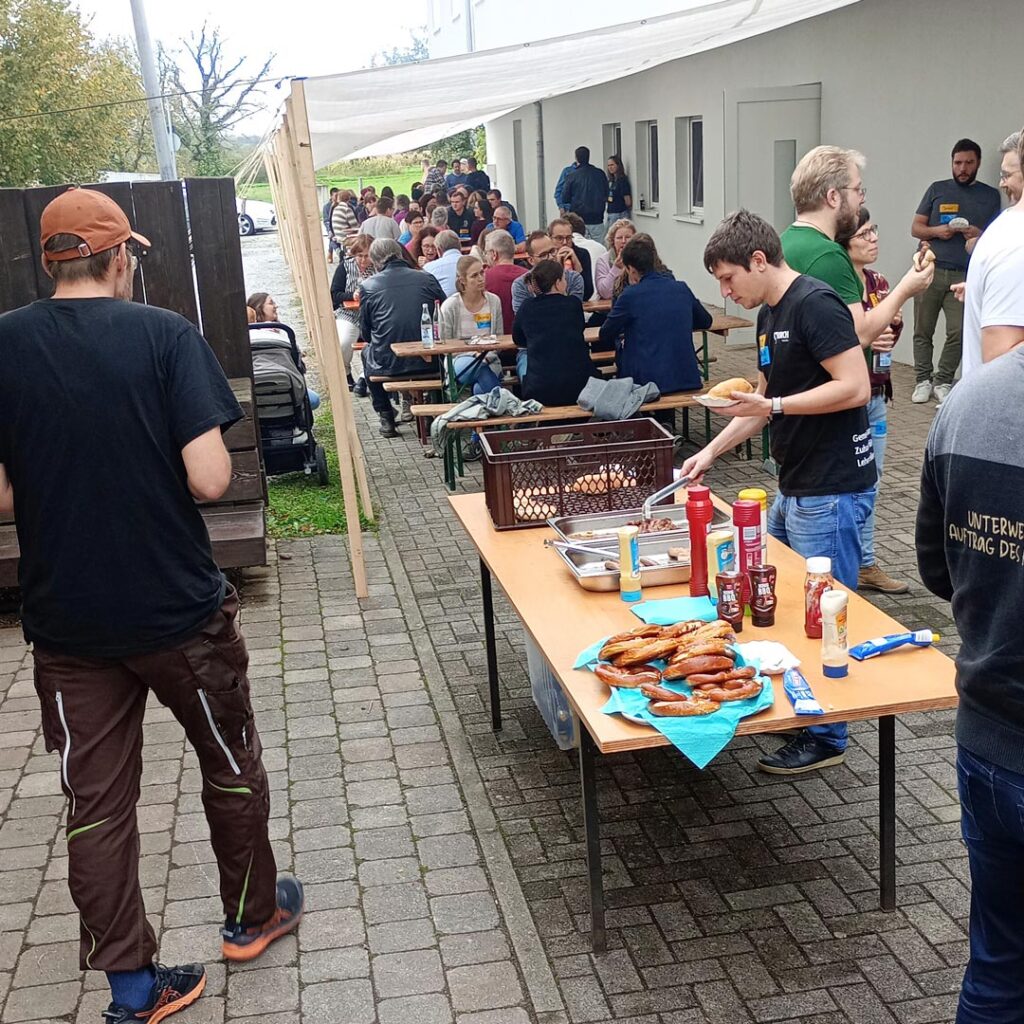
Are the younger generation moving into the contemplative faith stage earlier than in previous generations because of world situations such as climate change and wars? Is the result of the pandemic and the trauma that produced creating this reaction? How does the church respond if this is the case?
Given this it was comforting that clearly the Holy Spirit is working similarly across nations and this leaves me pondering even more about the cultural shift we are experiencing within the church as a whole.
Holy Spirit bubbling up everywhere
The employment situation of lay people within the German dioceses represented is very different to the UK. Many in the pioneer space are lay employees rather than clergy. This felt significant in terms of their flexibility but also difficult given that the power base lies primarily with the priesthood. This is clearly complicated and difficult to interpret accurately given the shortness of the visit and my lack of German!
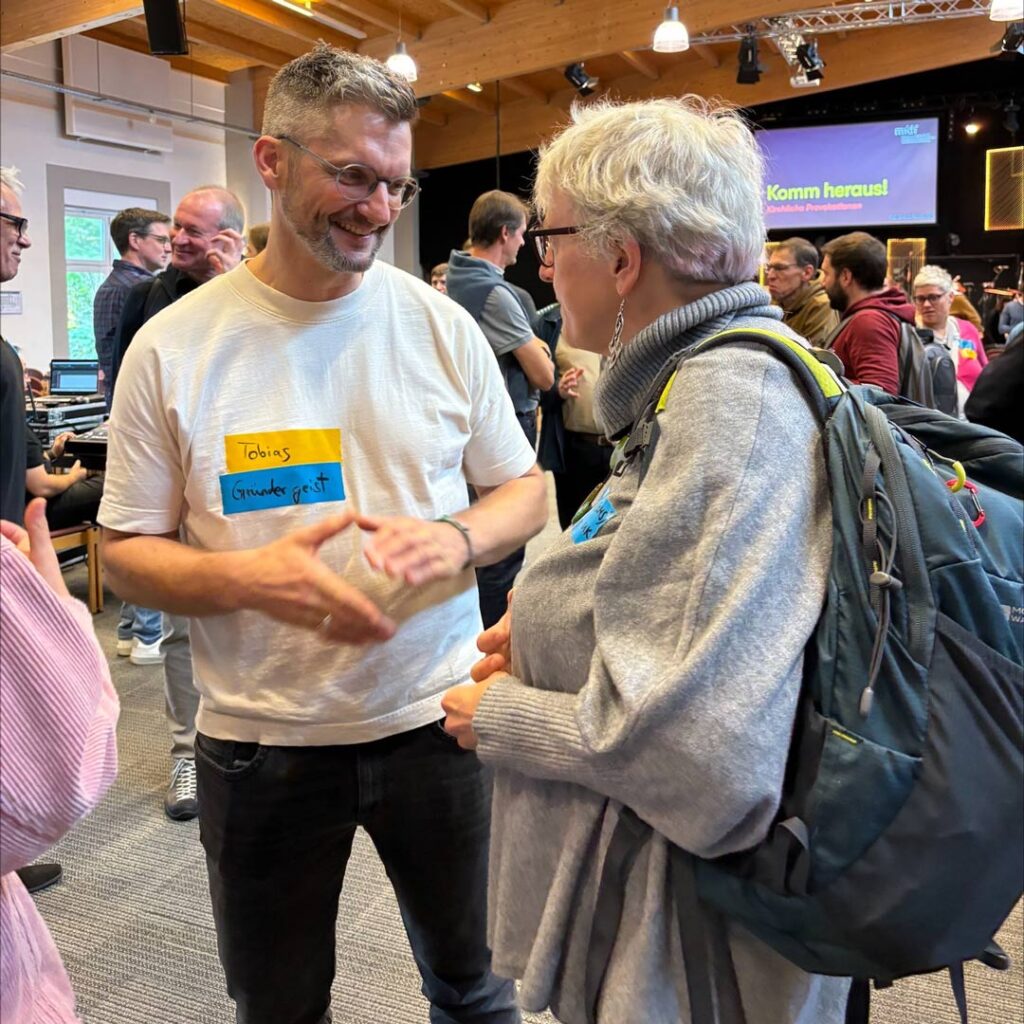
In summary my takeaways were: we can learn a lot in pioneering through the style of riff in jazz, we can see how the Holy Spirit is bubbling up everywhere as the world gets smaller through technology, how can the church and pioneer practice learn from a broader perspective and we need to find a different how, to help our why!
We had a wonderful weekend and thank our hosts for their warm and generous hospitality. A provisional date has been set for a few of us to meet again next year.